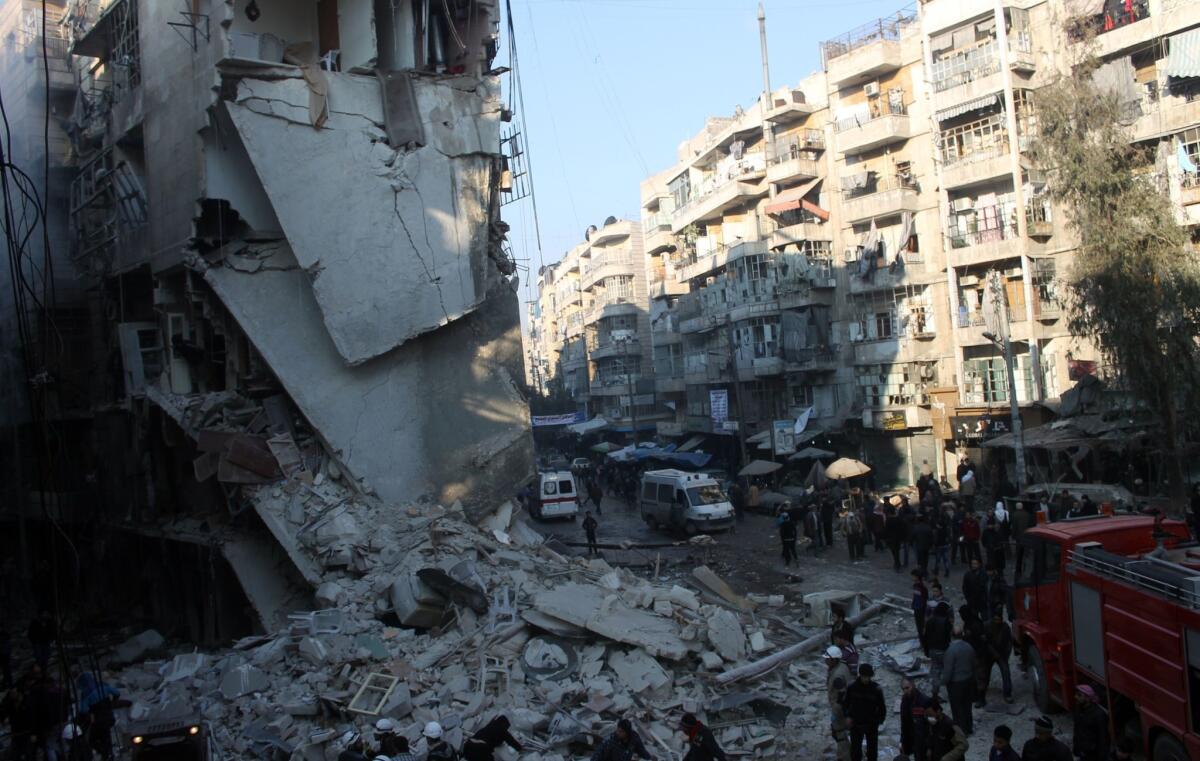Syria rebel group accused of kidnapping, torture and executions

BEIRUT -- Mohammed Subhi Abed, a soft-spoken man of 43, says he was working for the opposition Free Syria News radio station in the northern city of Raqqa when masked gunmen burst into the offices in June and confiscated all of the laptops and satellite equipment. They also abducted him, placing him in a badly lit cellar along with “six or seven” other people, he said.
“They tried to extract information from us by torture,” Abed recalled in a recent interview with the Los Angeles Times in Turkey.
His interrogators, he recalled, forced his legs through a tire, locked them in place with a metal rod, before beating the soles of his exposed feet with a braided wire. He was released after 32 days and fled to Turkey.
His kidnappers, he alleges, were from the Islamic State of Iraq and Sham, or ISIS, an Al Qaeda affiliate that has been gaining ground in rebel-held areas of Syria, especially in the north.
On Thursday, Amnesty International issued an 18-page report accusing ISIS of a range of abuses, including kidnappings, torture and summary executions, that may rise to the level of war crimes.
Electric shocks and frequent beatings are some of the methods mentioned in the report, which details the experiences of people held in detention centers said to be operated by the militant group.
ISIS, an offshoot of Al Qaeda in Iraq, rejects democracy as an “infidel system” and seeks to establish an Islamic state that adheres to a strict interpretation of sharia, or Islamic law. The group has consolidated its control over large swaths of northern Syria in Aleppo, Idlib and Raqqa provinces.
The city of Aleppo has seen heavy fighting this week, with government airstrikes reportedly killing scores of people.
Its fighters include many non-Syrians and veteran jihadists from other conflicts. Their willingness -- if not eagerness -- to become suicide bombers has helped make ISIS a dominant fighting force on the ground. The group has achieved success not only against troops loyal to Syrian President Bashar Assad but also against fellow rebels of the Western-backed Free Syrian Army, which it views as an ally of the “infidels.”
According to the Amnesty report, detainees were abducted, blindfolded and taken to undisclosed locations, then charged with committing crimes “such as theft, embezzlement or murder” or “what [ISIS] claimed were breaches of sharia, such as behavior deemed immoral,” including smoking cigarettes and consuming alcohol. They could also be accused of “giving out information considered harmful to ISIS,” the report says, saying such allegations are “often used against journalists and community and media activists.”
The militant group is suspected in the kidnappings of a number of foreign journalists as well as the abduction of Father Paolo Dall’Oglio, an Italian Jesuit priest who reportedly traveled to Syria in a bid to win the release of kidnap victims. Amnesty also accused ISIS of snatching and beating minors.
“Those abducted and detained by ISIS include children as young as 8 who are held together with adults in the same cruel and inhuman conditions,” said Philip Luther, Amnesty International’s director for the Middle East and North Africa. “Flogging anyone, let alone children, is cruel and inhuman, and a gross abuse of human rights.”
The Syrian crisis, which began in early 2011 as a series of peaceful protests, has escalated into a sectarian civil war pitting loyalist forces against a fragmented array of armed opposition groups, including some linked to Al Qaeda. The conflict “has been marked on all sides by criminal disdain for international principles relating to the protection of civilians and the conduct of warfare,” Amnesty International said.
But kidnapping is not solely a weapon of the Syrian opposition.
A report published Thursday by a United Nations investigatory commission concluded “that there are reasonable grounds to believe that acts of enforced disappearances were committed by government forces as part of widespread and systematic attacks against the civilian population.”
The commission, which was not allowed by the Syrian government to “undertake investigations inside the country,” stated that enforced disappearances were systematically employed to silence the opposition -- “an extremely worrying phenomenon which has affected many thousands of family members who simply don’t know the fate of their loved ones.”
Although the U.N.-commissioned report singled out government forces, it also noted that rebel groups, including ISIS, were “adopt[ing] practices that could be considered tantamount to enforced disappearances, in breach of their obligations under customary international humanitarian law.”
Bulos is a special correspondent. Times staff writer Patrick J. McDonnell contributed to this report.
More to Read
Sign up for Essential California
The most important California stories and recommendations in your inbox every morning.
You may occasionally receive promotional content from the Los Angeles Times.










